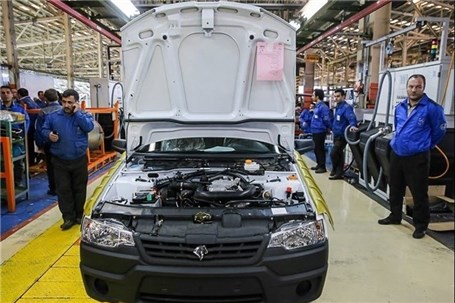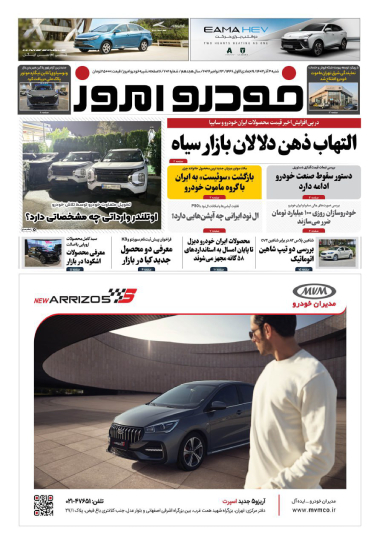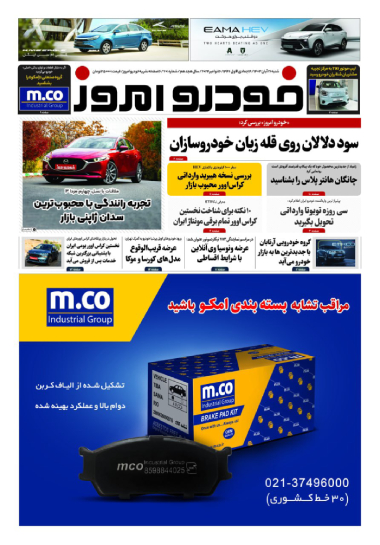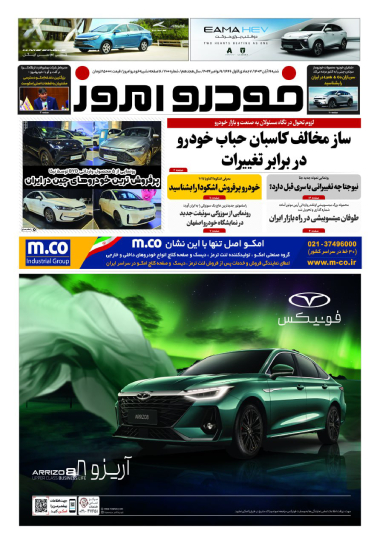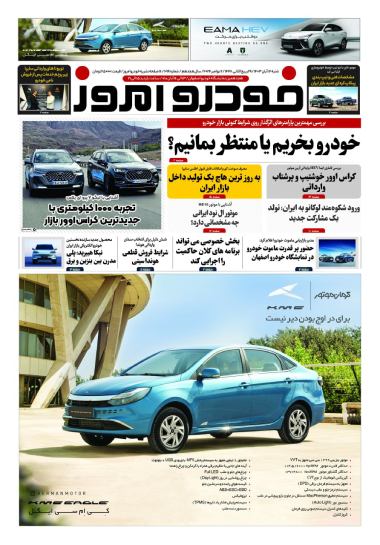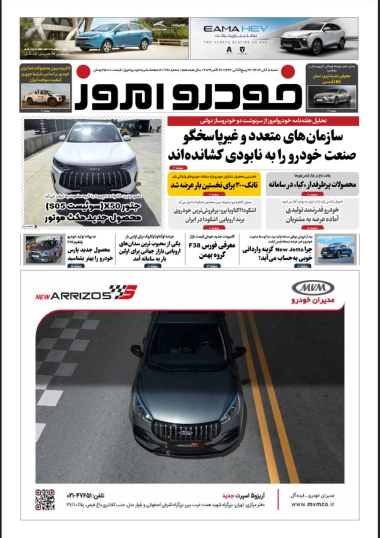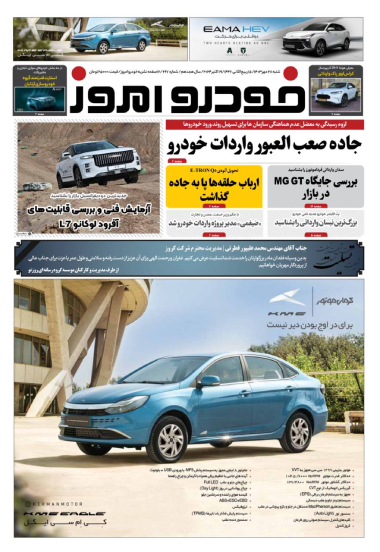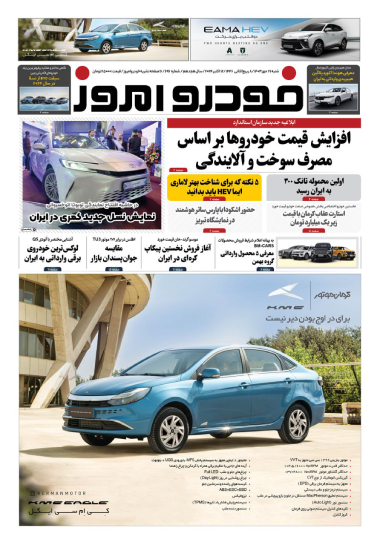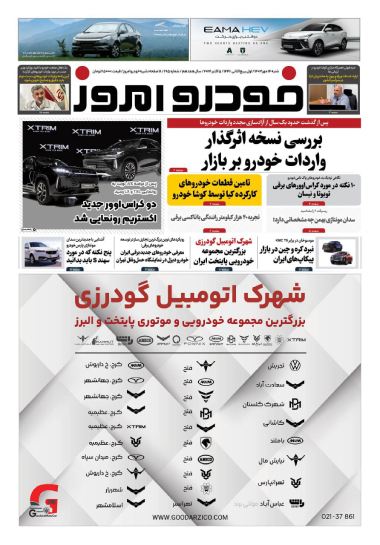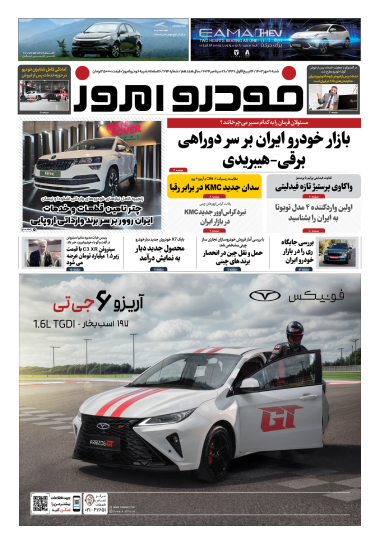


How to seize Iran’s automotive opportunities
ASre Khodro: While the removal of international sanctions has created vast opportunities for global market players to enter and/or re-enter Iran, the state of the Iranian automotive market prior to the historical announcement had looked grim. Since ۲۰۱۱, the number of car sales decreased dramatically – falling ۵۳% from ۱.۵ million to ۰.۷ million in ۲۰۱۳. Between the start of ۲۰۱۴ and the end of ۲۰۱۵, the market climbed up slightly, averaging only ۰.۹ million.
Reporting "Asre Khodro", With easing of sanctions, the market is expected to accelerate and grow strongly at 16% per annum in the coming years with 1.4 million and 1.8 million car sales by 2020. Demographic shift witnessed in the market is driving further demand for premium vehicles. The Iranian middle class, who accounts for 30% of the population, is showing interest in the premium international automotive industry. Coupled with imported vehicle preference and high purchasing power, the premium segment will likely grow by 66% per annum until 2020 – from 7,000 sales in 2015 to more than 90,000 by 2020.
The time for global automotive players to make their mark in Iran is now, while promising opportunities still exist. However, in spite of overall market profile being positive, a number of factors will need to be taken into careful consideration by multinational companies seeking to supply vehicles to the country’s 79 million people.
Given Iran’s historical isolation from the global economy, its effects continue to be a burden on the state budget. But also, the Iranian tax system comes with its complexities and with a high degree of state regulation.
In order to capitalize on these opportunities Iran possesses, foreign companies will need to do research thoroughly. Necessary preparations for entering the market include knowledge of the country’s complex customs and tax regulations and new emissions rules. In addition, automotive manufacturing companies need to decide whether importing or local production is the better option for their business model and whether a greenfield approach is prioritized in place of cooperating with local partners.
Knowing the competitive environment and being familiar with local customer needs are also advised. The most imperative factor, however, lies on the company’s ability to establish close relationships with local institutions and authorities.
Source: marketresearchiran.com
- $۲ Billion Aid Package to Bolster Automotive Industry
- Sout Korea’s auto exports down ۱.۶% in Feb.
- Renault to Return to Iran: Deputy Minister
- Auto supplier Duerr stops Iran business due to sanctions: Boersen-Zeitung
- Renault to stay in Iran despite US sanctions
- Customs barriers have prevented the growth of localization
- M&M plans SUV foray into Iran
- Automotive Industry in Iran, a short review
- Iran’s Car Industry and the Localization Conjectures
- Automakers are forced to implement new car standards
شرایط و ضوابط واردات انواع خودروهای سواری
هاچبک پرفورمنس BYD وارد خط تولید میشود
با ۵ دقیقه شارژ ۳۰۰ کیلومتر پیمایش کنید
مرکز اسقاط سایپاخزر در قائم شهر راه اندازی شد
اعمال قانون بیش از ۲۱۰۰۰خودرو و موتورسیکلت به دلیل پوشش پلاک
آیین نامه واردات خودروهای کارکرده کجاست؟
الزام استفاده از شناسه کالا برای ثبت سفارش های صنایع خودرو
تضعیف جایگاه نیسان در تایلند با حضور برندهای چینی
الزام خودروسازان به تخصیص سهمیه ۲۰ درصدی برای مالکان خودروهای فرسوده
آیا روند مجوزدهیها تسهیل خواهد شد؟
تغییر گسل قیمت خودرو
الصاق عکس پلاک به قبض؛ دیگر جریمه اشتباهی نداریم!
دوربرگردان عرضه خودرو از جاده مخصوص به بورس کالا
بزرگترین تولیدکننده باتری اروپا اعلام ورشکستگی کرد
۶۶۳۶ دستگاه خودروی دیزلی معطل شماره گذاری پلیس

